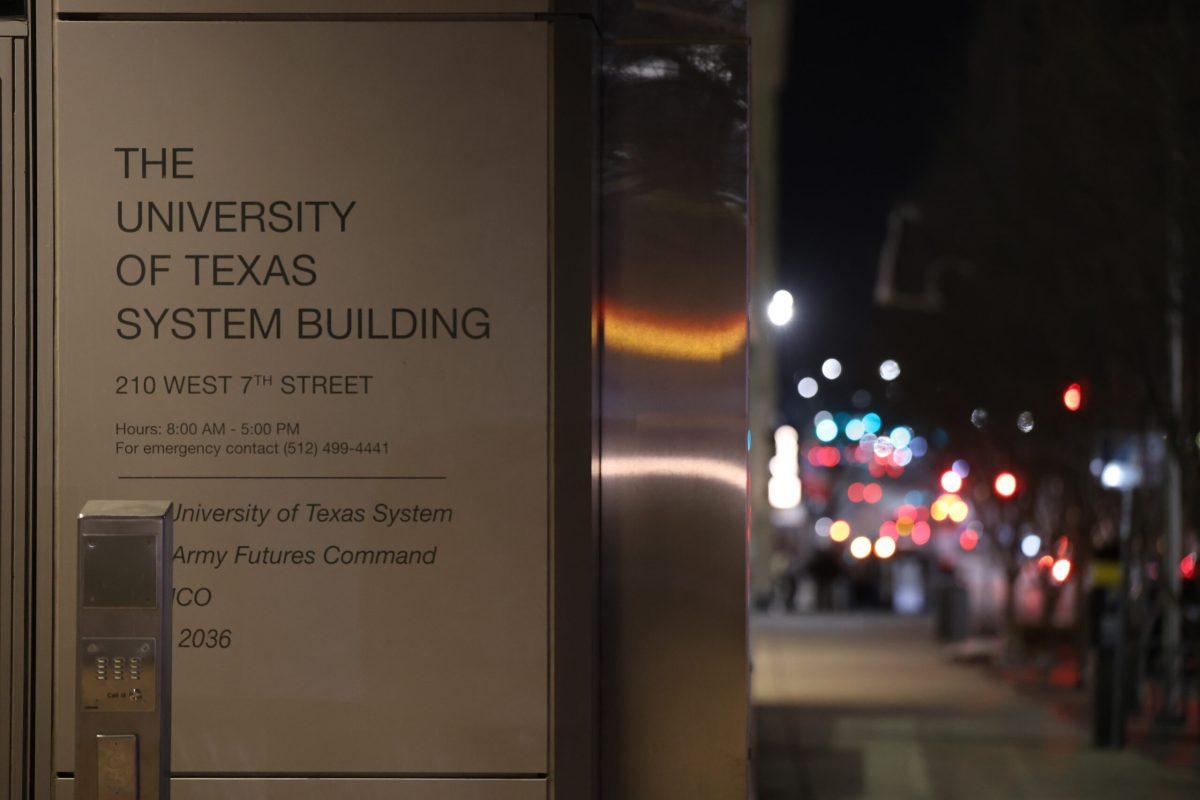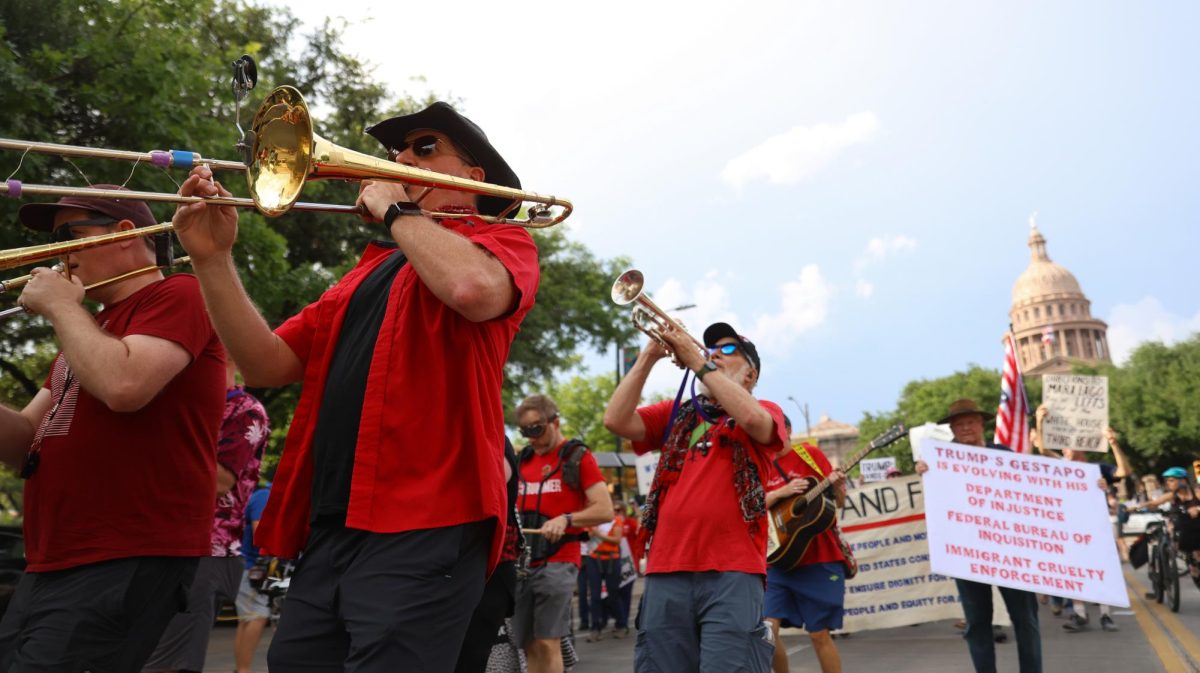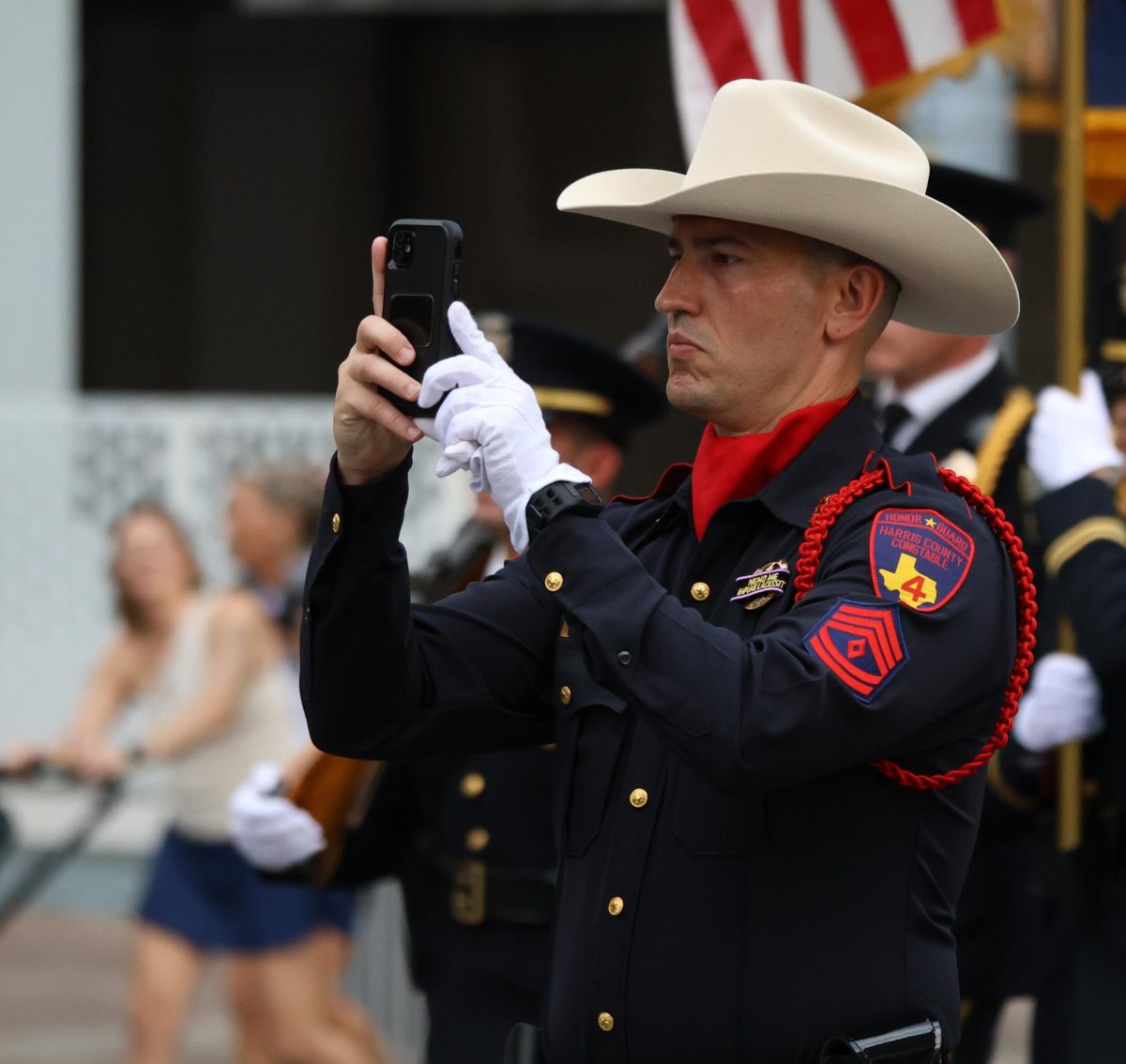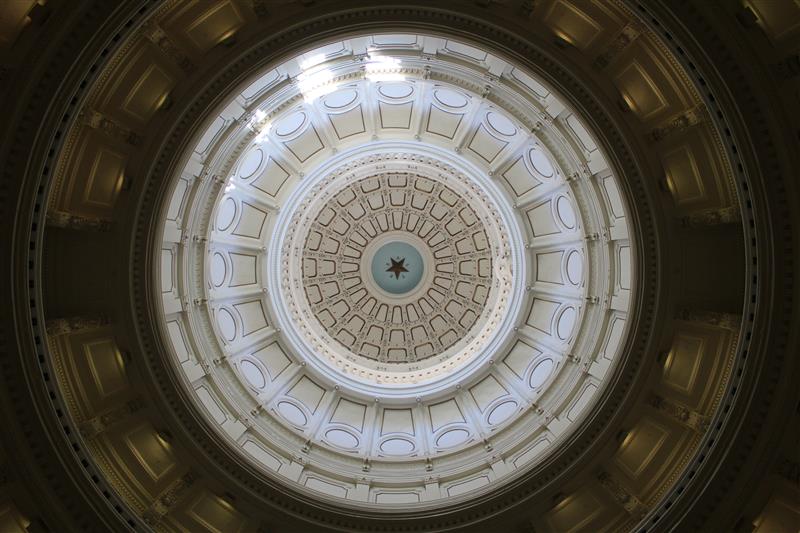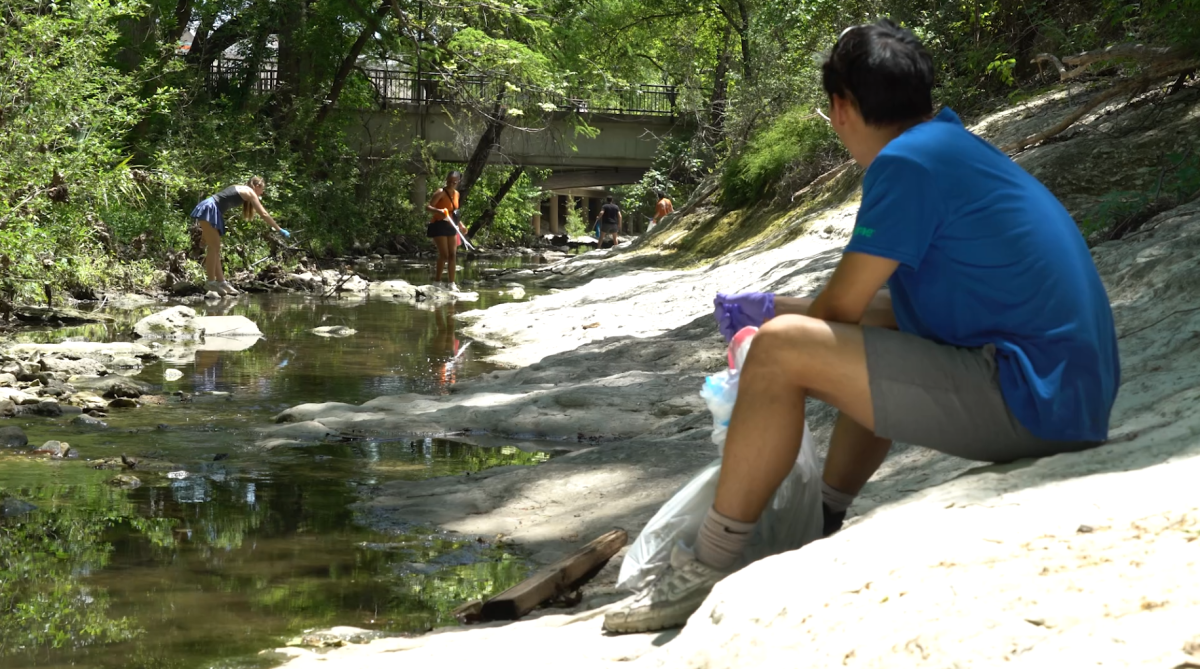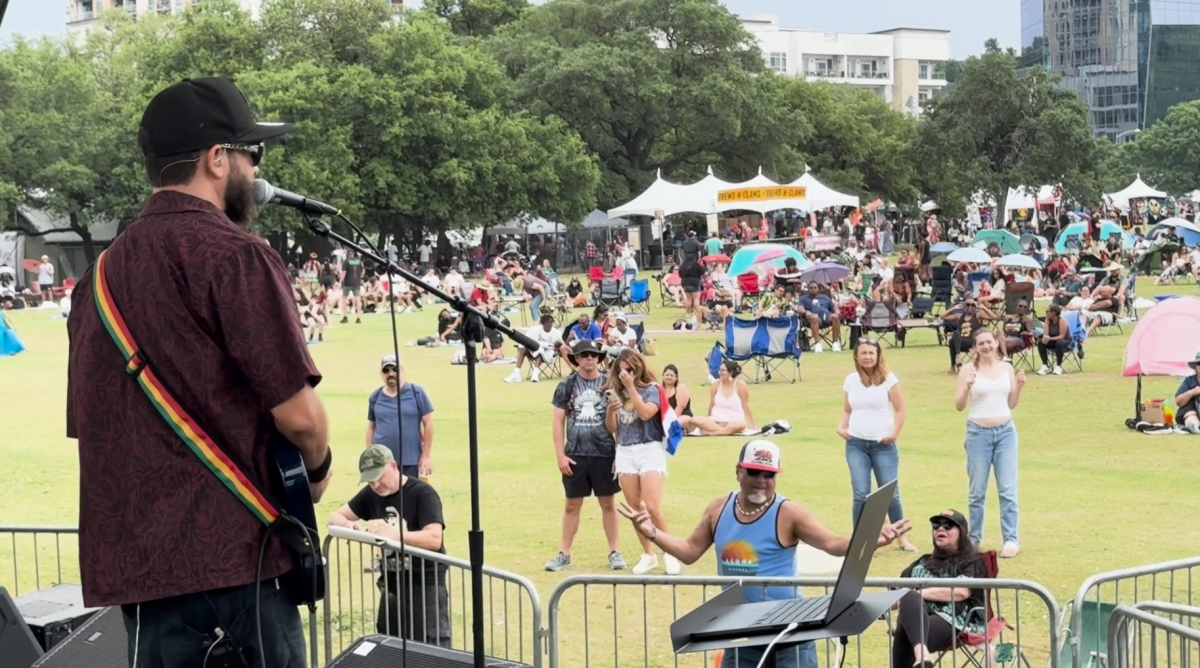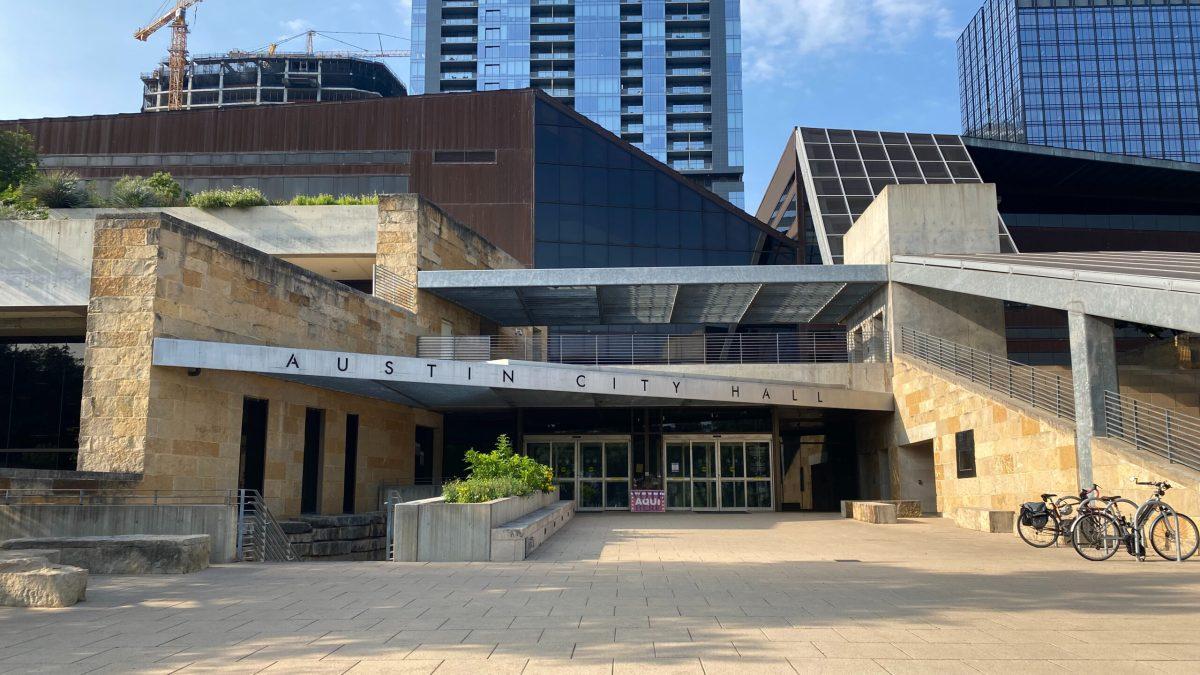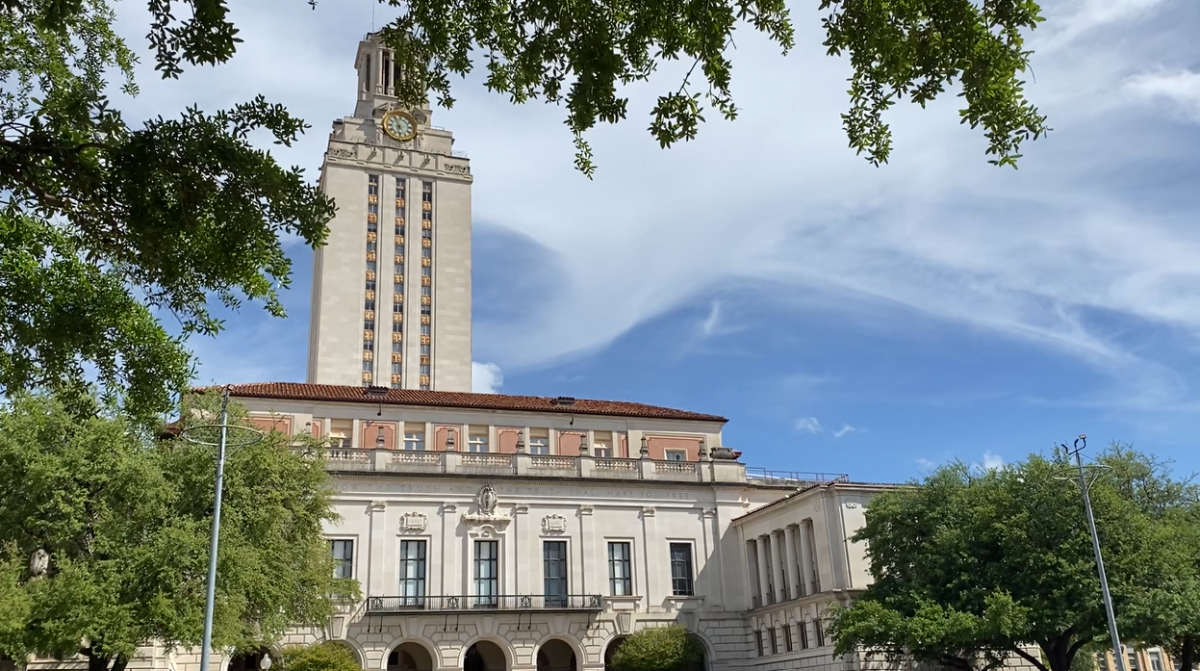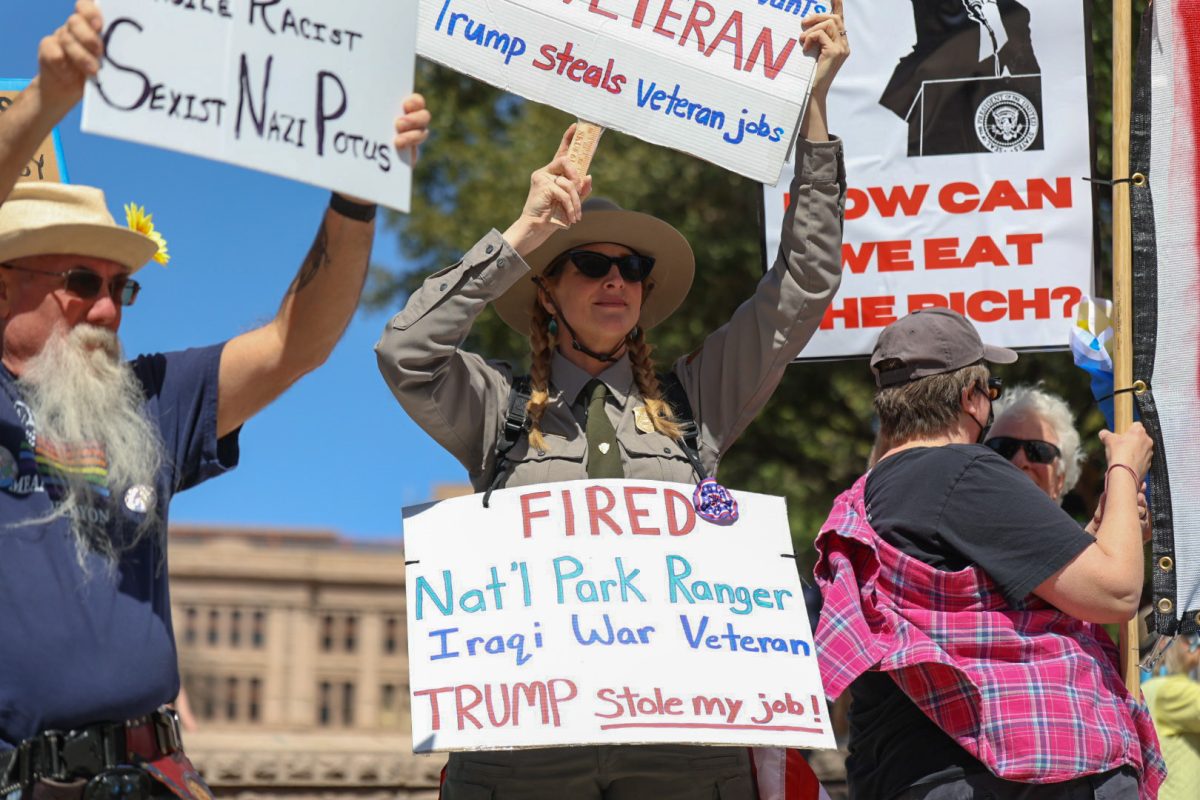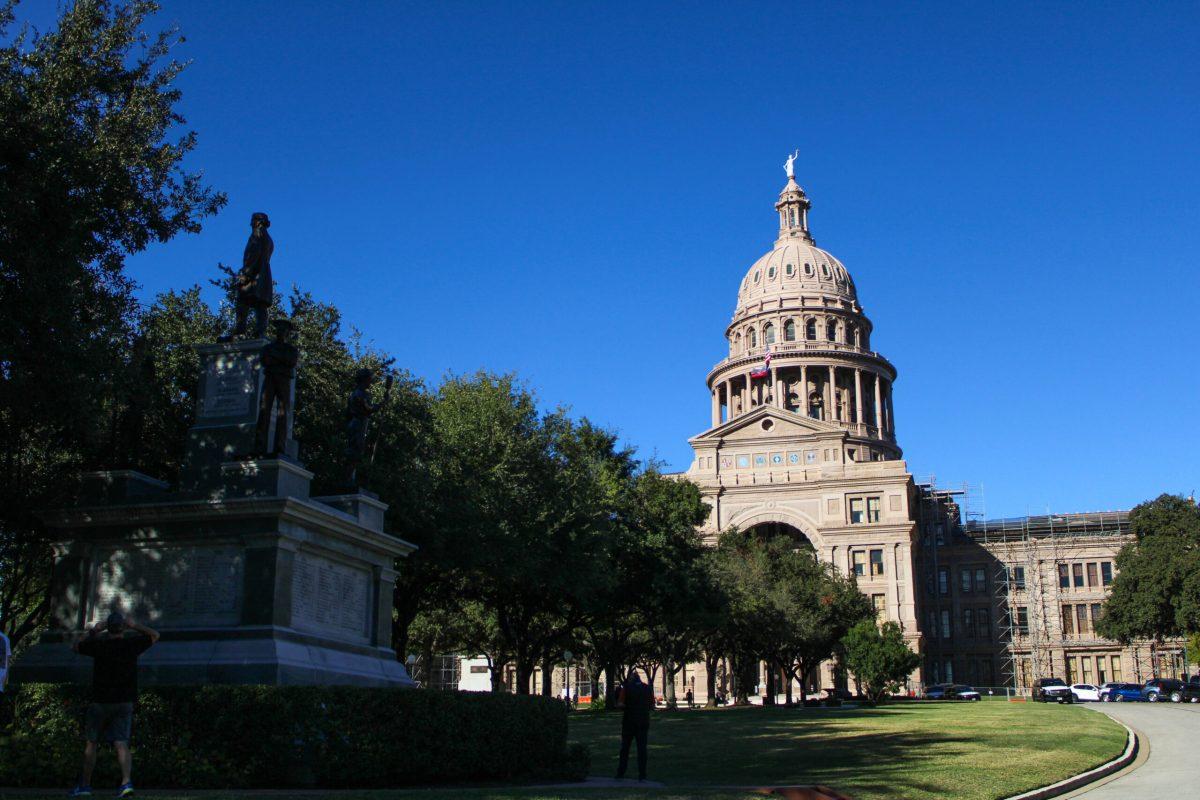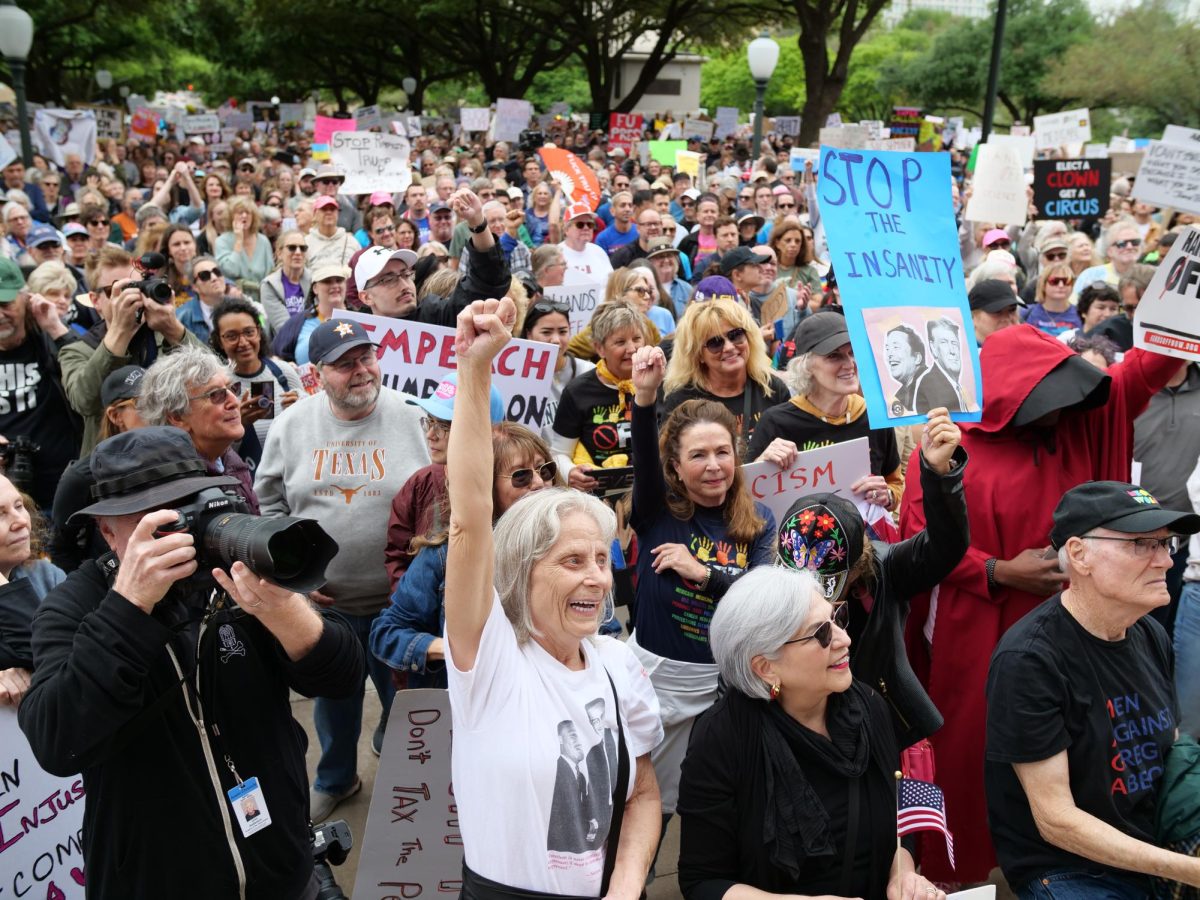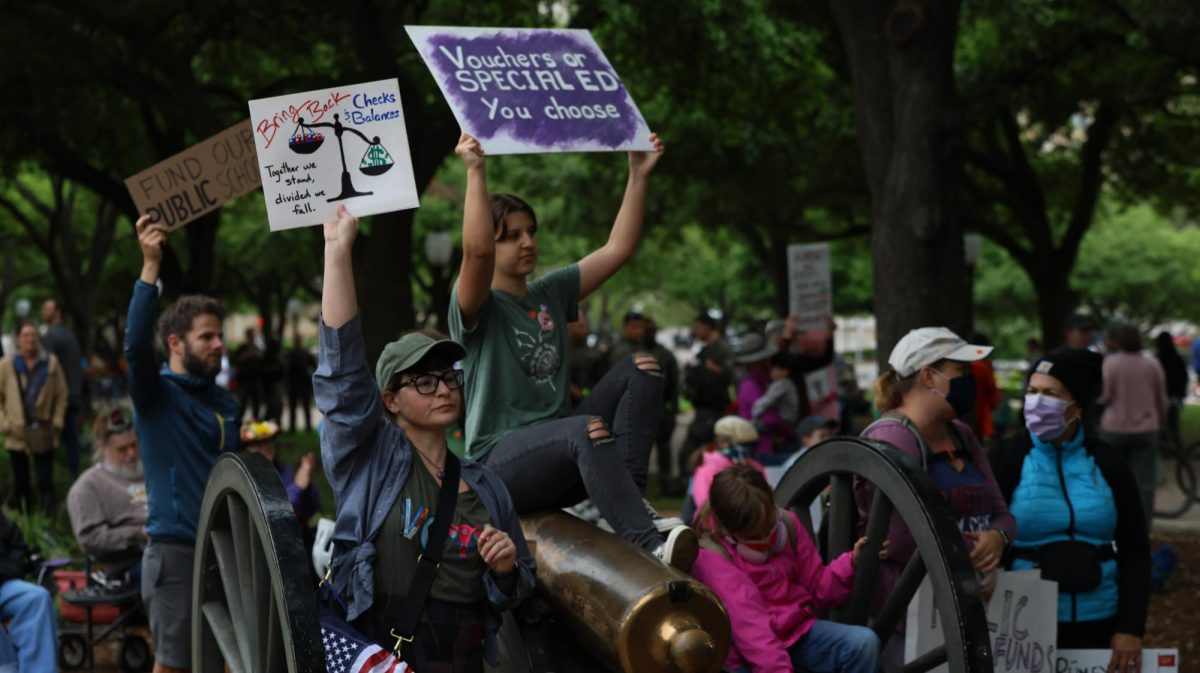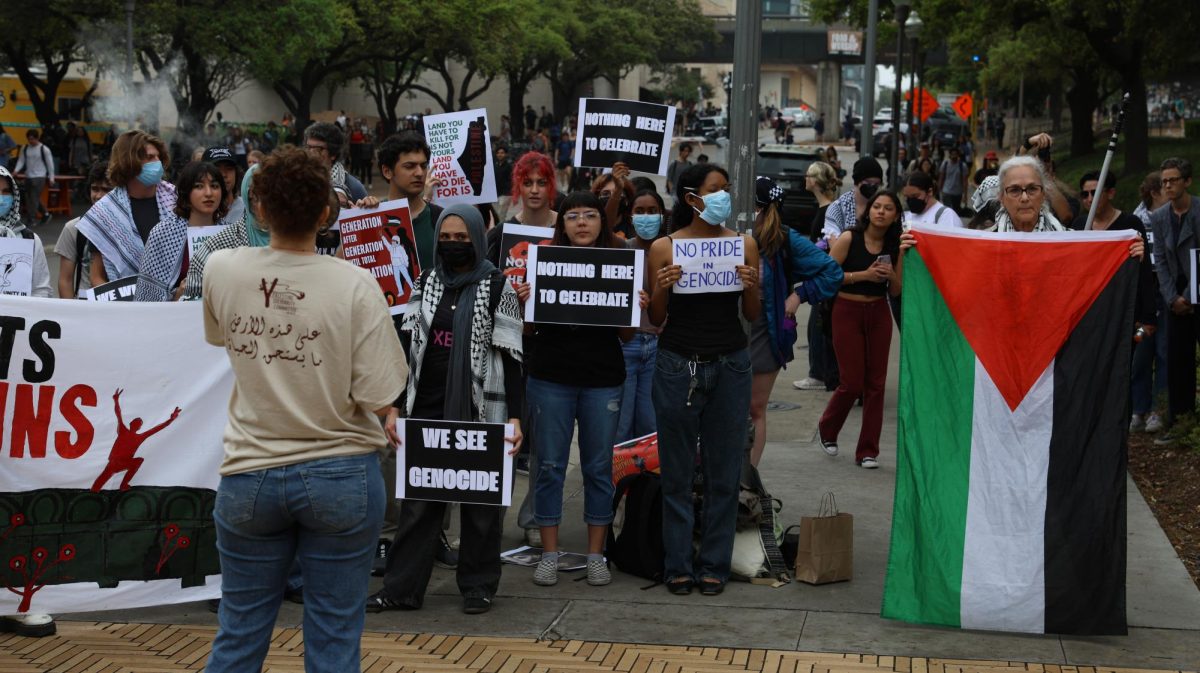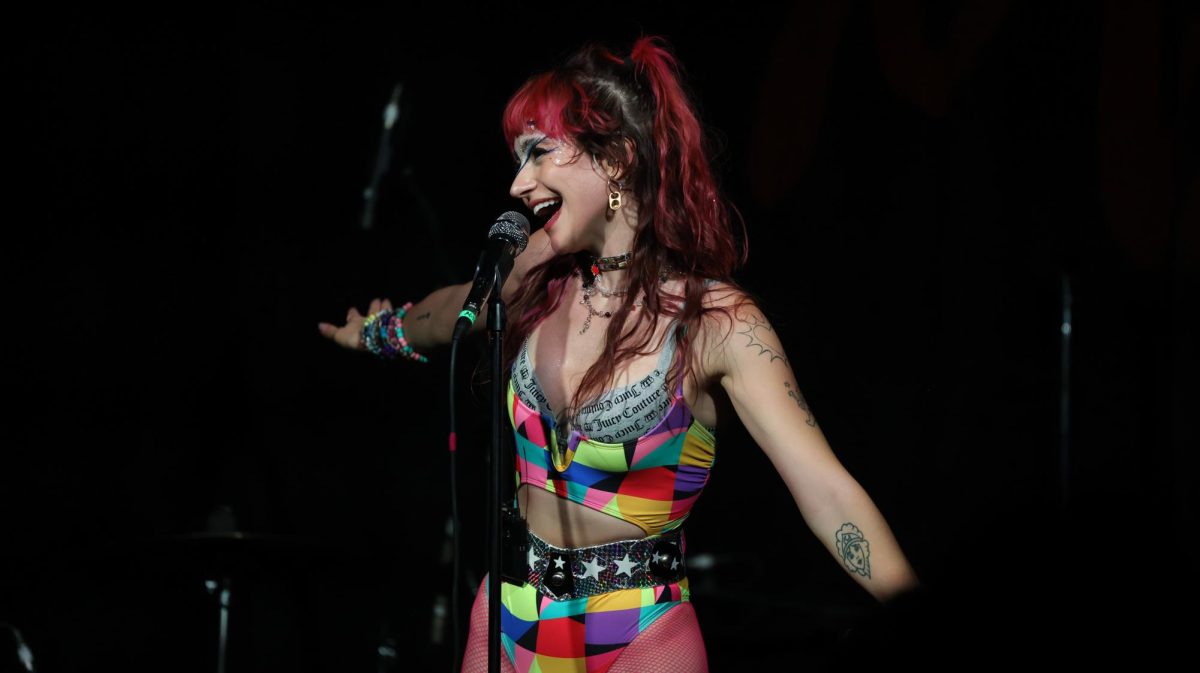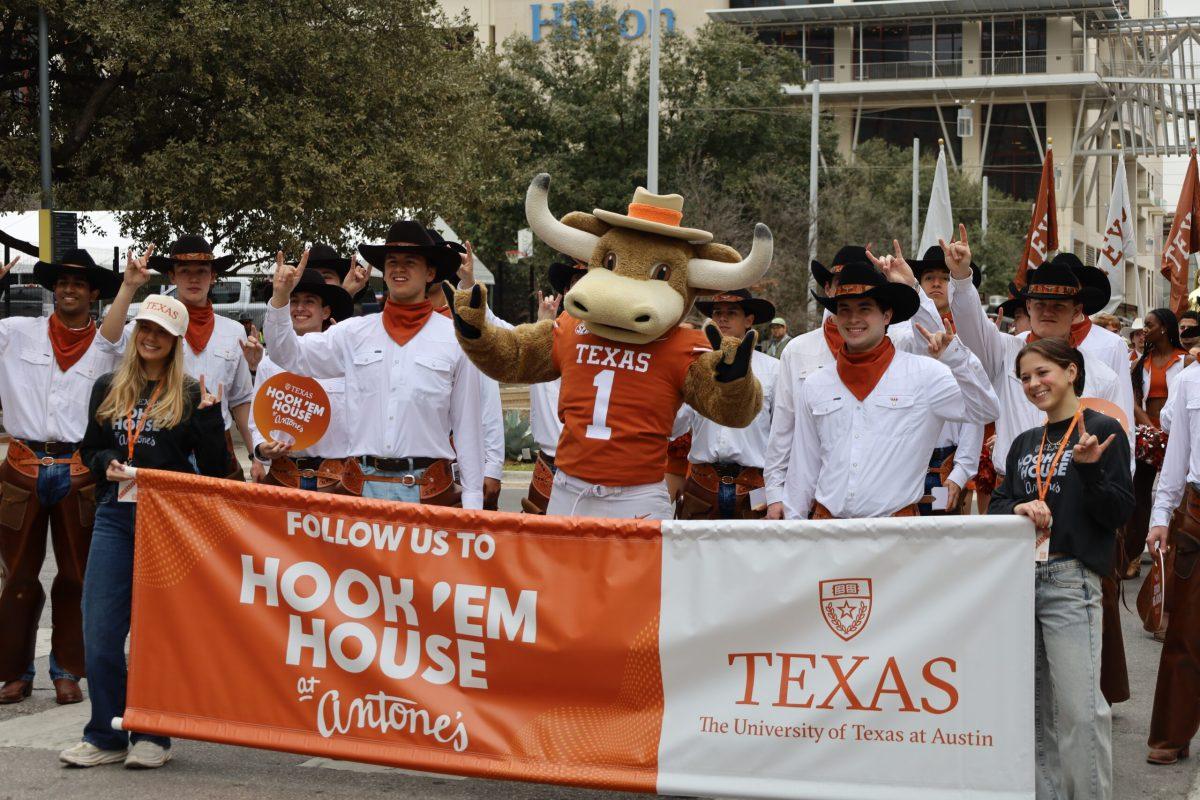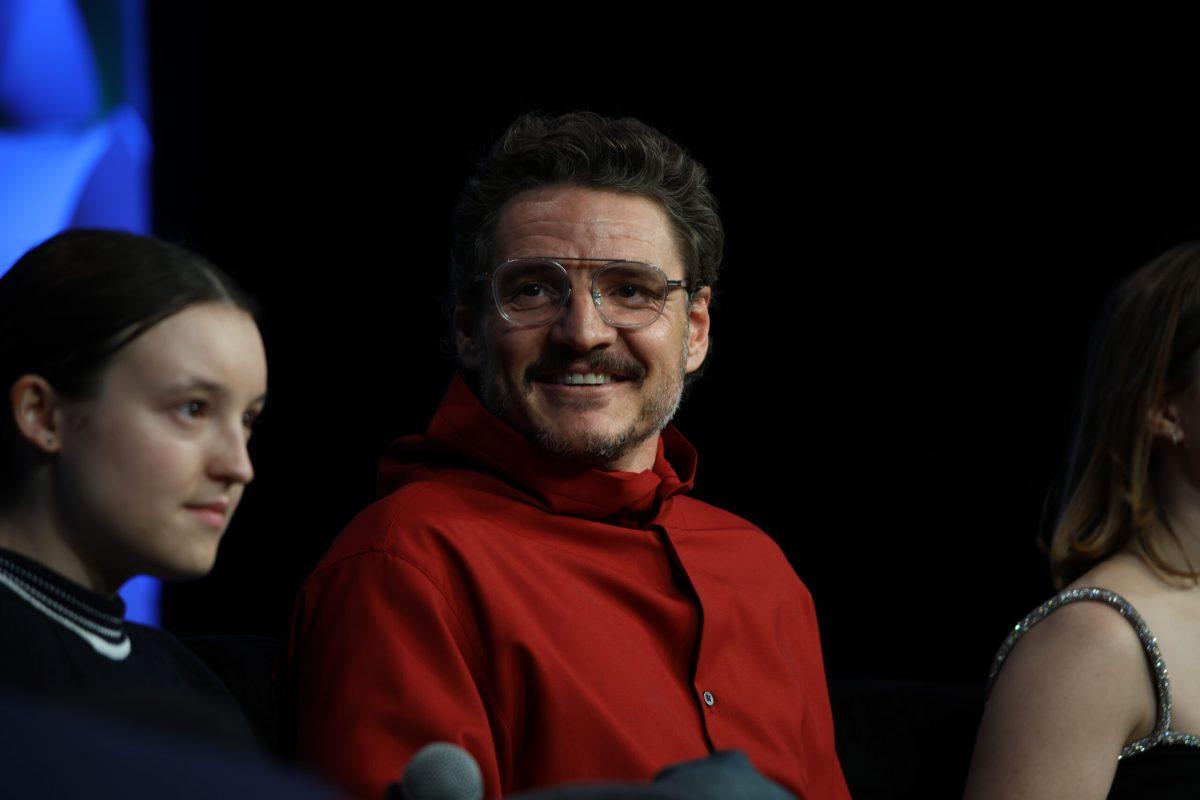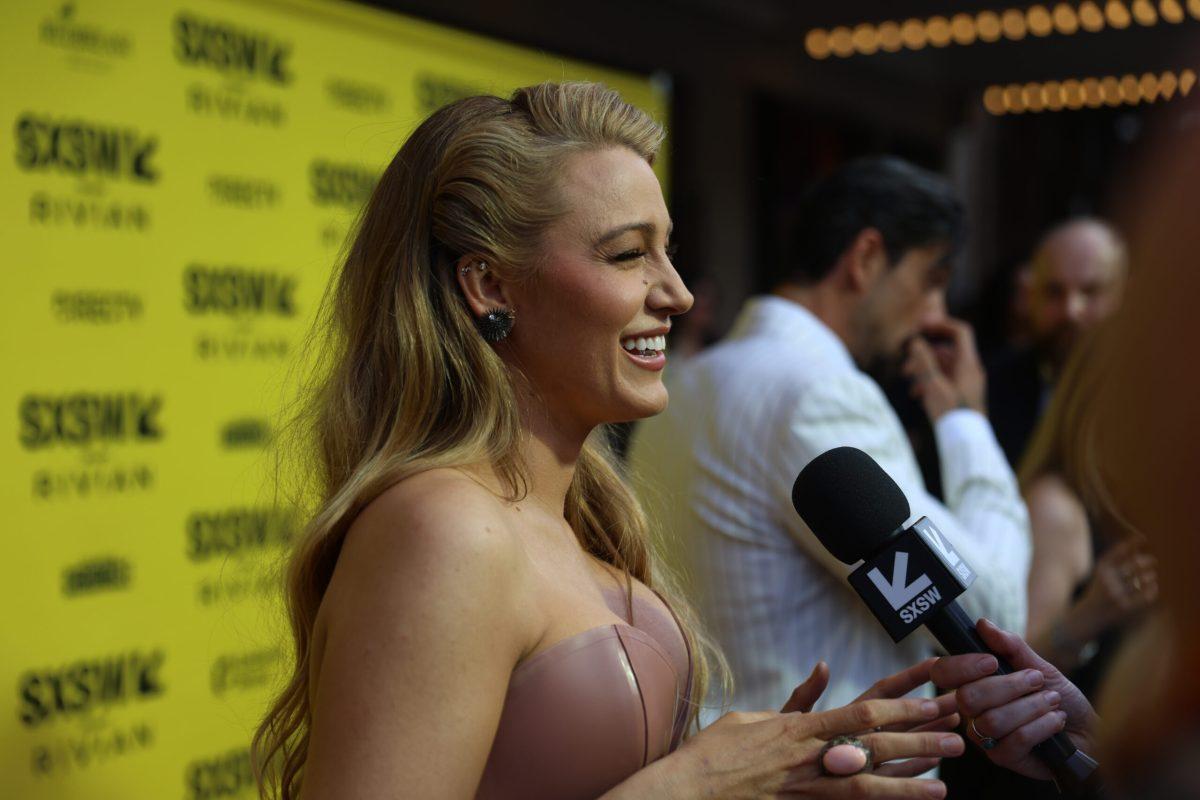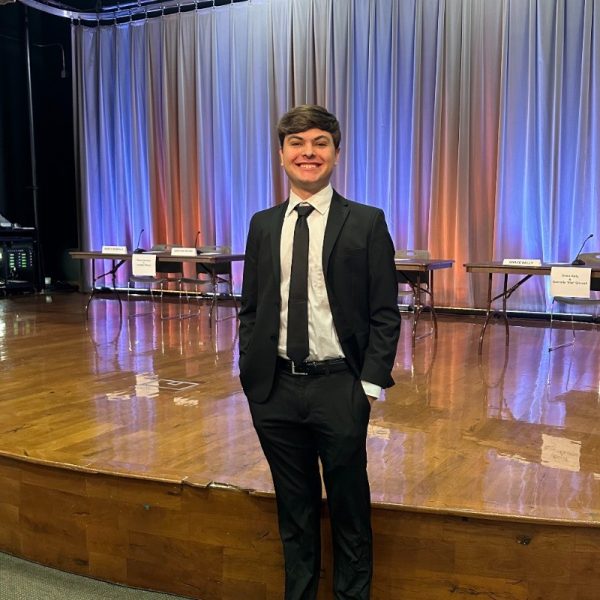Editor’s note: This article was updated to include statements from the LBJ School.
Over 150 protesters gathered outside of the Lyndon B. Johnson School of Public Affairs Tuesday to protest an event featuring former Israeli Prime Minister Naftali Bennett. Hillel International hosted Bennett as part of their 2024 Teach-In Tour, a speaker series being held at universities across the country focusing on the history of Israel and the current Israeli-Hamas war.
The protest was held by the Palestine Solidarity Committee and the Austin for Palestine Coalition in opposition to Bennett’s presence on campus.
Demonstrators emphasized Bennett’s role in the 1996 Qana Massacre, a controversial military engagement by Israel in Lebanon where 106 refugee civilians were killed. They also highlighted comments Bennett made against Palestinians and his lack of remorse for having “killed many Arabs in (his) life,” which he said according to The Times of Israel.
Demonstrators held signs protesting both and set up a mock crime scene to raise awareness of the Qana Massacre.
“Our motivation is to make sure Naftali Bennett and event organizers know that students are unhappy with the precedent UT has set,” said Jenna, a University of Texas alumna and leader in the Palestine Solidarity Committee. “The level of disrespect — hosting Naftali Bennett is worse than one would imagine UT doing, yet it’s still expected. The things he supports are not things a university should endorse.”
The LBJ School did not organize or promote the event, Dean JR DeShazo said in an email statement. DeShazo said the event was hosted by the Strauss Center and Hillel, and they reserved the auditorium through the Joe C. Thompson Conference Center, not the LBJ School.
Event security, including non-university security, was coordinated between the organizers and the Dean of Students office, DeShazo said.
Protesters were asked by Dean of Students staff to relocate their initial demonstration to at least 10 feet away from the LBJ School building because the event organizers had reserved a larger portion of the building than where the event was taking place.
DeShazo said the Thompson Center controls scheduling for the LBJ Auditorium and the lobby space outside of it, but that they are often asked to provide access to elevators to reach the Lady Bird Auditorium. DeShazo said why protesters were asked to move is within the Dean of Students office’s domain.
The Strauss Center, Dean of Students office and Hillel International did not immediately respond to requests for comment.
Before demonstrators arrived, staff from the Dean of Students’ Event Readiness and Response unit and UTPD officers were on site at the demonstration area, where they remained throughout the demonstration and speaker event.
Staff requested demonstrators move their signs and installation at least 10 feet from the building. Throughout the event, staff wandered through the crowd asking protesters beating drums to adhere to restrictions on amplified sound.
UTPD officers erected a police line from caution tape, limiting protesters’ ability to move closer to the LBJ Presidential Library doors.
Shortly after the tape was strung across the walkway and plaza stairs, State Troopers from the Department of Public Safety arrived and positioned two police vehicles between the police line and the doors, forming a barrier. Protesters made no attempt to advance beyond the police line.
DPS was called to “serve in a supporting role as a precautionary measure due to the size of the group,” university spokesperson Mike Rosen and UTPD each said in an email statement. UTPD confirmed they requested “to have DPS on hand.”
Jenna, along with Hadi, a College of Natural Sciences senior and active PSC member, both felt the response by law enforcement was excessive and meant to intimidate protesters.
“The response was unnecessary,” Hadi said. “They have a tendency to draw toward escalation. Today there was no need to bring their cars on campus. We made it clear we only intended to express our first amendment rights in a peaceful way.”
The protest was intended to be a “noise demonstration,” and it adhered to that expectation. No arrests were made at the protest, and, beyond occasional profane language and comments directed toward a group of around a dozen law enforcement officers, it remained peaceful and focused on Bennett’s presence.

